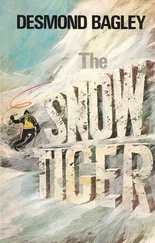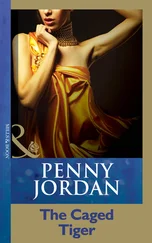I put up with his usual threats and warnings-no A/C, no music, no wasting fuel, blah blah blah. I stood on the platform and watched as he ate his snack. When the train left, I danced around the platform and clapped my hands. Two homeless urchins were watching me, and they laughed-they clapped their hands too. One of them began singing a song from the latest Hindi film, and we danced together on the platform.
Next morning, I was in the apartment, and Mr. Ashok was fiddling with the red bag and getting ready to leave, when the phone began to ring.
I said, "I'll take the bag down, sir. I'll wait in the car."
He hesitated, then held the bag out in my direction. "I'll join you in a minute."
I closed the door of the apartment. I walked to the elevator, pressed the button, and waited. It was a heavy bag, and I had to shift it about in my palm.
The elevator had reached the fourth floor.
I turned and looked at the view from the balcony of the thirteenth floor-the lights were shining from Gurgaon's malls, even in broad daylight. A new mall had opened in the past week. Another one was under construction. The city was growing.
The elevator was coming up fast. It was about to reach the eleventh floor.
I turned and ran.
Kicking the door of the fire escape open, hurrying down two flights of dark stairs, I clicked the red bag open.
All at once, the entire stairwell filled up with dazzling light-the kind that only money can give out.
Twenty-five minutes later, when Mr. Ashok came down, punching the buttons on his cell phone, he found the red bag waiting for him on his seat. I held up a shining silver disk as he closed the door.
"Shall I play Sting for you, sir?"
As we drove, I tried hard not to look at the red bag-it was torture for me, just like when Pinky Madam used to sit in short skirts.
At a red light, I looked at the rearview mirror. I saw my thick mustache and my jaw. I touched the mirror. The angle of the image changed. Now I saw long beautiful eyebrows curving on either side of powerful, furrowed brow muscles; black eyes were shining below those tensed muscles. The eyes of a cat watching its prey.
Go on, just look at the red bag, Balram-that's not stealing, is it?
I shook my head.
And even if you were to steal it, Balram, it wouldn't be stealing.
How so? I looked at the creature in the mirror.
See-Mr. Ashok is giving money to all these politicians in Delhi so that they will excuse him from the tax he has to pay. And who owns that tax, in the end? Who but the ordinary people of this country -you !
"What is it, Balram? Did you say something?"
I tapped the mirror. My mustache rose into view again, and the eyes disappeared, and it was only my own face staring at me now.
"This fellow in front of me is driving rashly, sir. I was just grumbling."
"Keep your cool, Balram. You're a good driver, don't let the bad ones get to you."
The city knew my secret. One morning, the President's House was covered in smog and blotted out from the road; it seemed as though there were no government in Delhi that day. And the dense pollution that was hiding the prime minister and all his ministers and bureaucrats said to me:
They won't see a thing you do. I'll make sure of that.
I drove past the red wall of Parliament House. A guard with a gun was watching me from a lookout post on the red wall-he put his gun down the moment he saw me.
Why would I stop you? I'd do the same, if I could.
At night a woman walked with a cellophane bag; my headlights shone into the bag and turned the cellophane transparent. I saw four large dark fruits inside the bag-and each dark fruit said, You've already done it. In your heart you've already taken it . Then the headlights passed; the cellophane turned opaque; the four dark fruits vanished.
Even the road-the smooth, polished road of Delhi that is the finest in all of India -knew my secret.
One day at a traffic signal, the driver of the car next to me lowered the window and spat out: he had been chewing paan, and a vivid red puddle of expectorate splashed on the hot midday road and festered there like a living thing, spreading and sizzling. A second later, he spat again-and now there was a second puddle on the road. I stared at the two puddles of red, spreading spit-and then:
I turned my face away from the red puddles. I looked at the red bag sitting in the center of my rearview mirror, like the exposed heart of the Honda City.
That day I dropped Mr. Ashok off at the Imperial Hotel, and he said, "I'll be back in twenty minutes, Balram."
Instead of parking the car, I drove to the train station, which is in Pahar Ganj, not far from the hotel.
People were lying on the floor of the station. Dogs were sniffing at the garbage. The air was moldy. So this is what it will be like, I thought.
The destinations of all the trains were up on a blackboard.
Benaras
Jammu
Amritsar
Mumbai
Ranchi
What would be my destination, if I were to come here with a red bag in my hand?
As if in answer, shining wheels and bright lights began flashing in the darkness.
Now, if you visit any train station in India, you will see, as you stand waiting for your train, a row of bizarre-looking machines with red lightbulbs, kaleidoscopic wheels, and whirling yellow circles. These are your-fortune-and-weight-for-one-rupee machines that stand on every rail platform in the country.
They work like this. You put your bags down to the side. You stand on them. Then you insert a one-rupee coin into the slot.
The machine comes to life; levers start to move inside, things go clankety-clank, and the lights flash like crazy. Then there is a loud noise, and a small stiff chit of cardboard colored either green or yellow will pop out of the machine. The lights and noise calm down. On this chit will be written your fortune, and your weight in kilograms.
Two kinds of people use these machines: the children of the rich, or the fully grown adults of the poorer class, who remain all their lives children.
I stood gazing at the machines, like a man without a mind. Six glowing machines were shining at me: lightbulbs of green and yellow and kaleidoscopes of gold and black that were turning around and around.
I got up on one of the machines. I sacrificed a rupee-it gobbled the coin, made noise, gave off more lights, and released a chit.
LUNNA SCALES CO.
NEW DELHI 110 055
YOUR WEIGHT
59
"Respect for the law is the first command of the gods."
I let the fortune-telling chit fall on the floor and I laughed.
Even here, in the weight machine of a train station, they try to hoodwink us. Here, on the threshold of a man's freedom, just before he boards a train to a new life, these flashing fortune machines are the final alarm bell of the Rooster Coop.
The sirens of the coop were ringing-its wheels turning-its red lights flashing! A rooster was escaping from the coop! A hand was thrust out-I was picked up by the neck and shoved back into the coop.
I picked the chit up and reread it.
My heart began to sweat. I sat down on the floor.
Think, Balram. Think of what the Buffalo did to his servant's family.
Above me I heard wings thrashing. Pigeons were sitting on the roof beams all around the station; two of them had flown from a beam and began wheeling directly over my head, as if in slow motion-pulled into their breasts, I saw two sets of red claws.
Not far from me I saw a woman lying on the floor, with nice full breasts inside a tight blouse. She was snoring. I could see a one-rupee note stuffed into her cleavage, its lettering and color visible through the weave of her bright green blouse. She had no luggage. That was all she had in the world. One rupee. And yet look at her-snoring blissfully, without a care in the world.
Читать дальше












